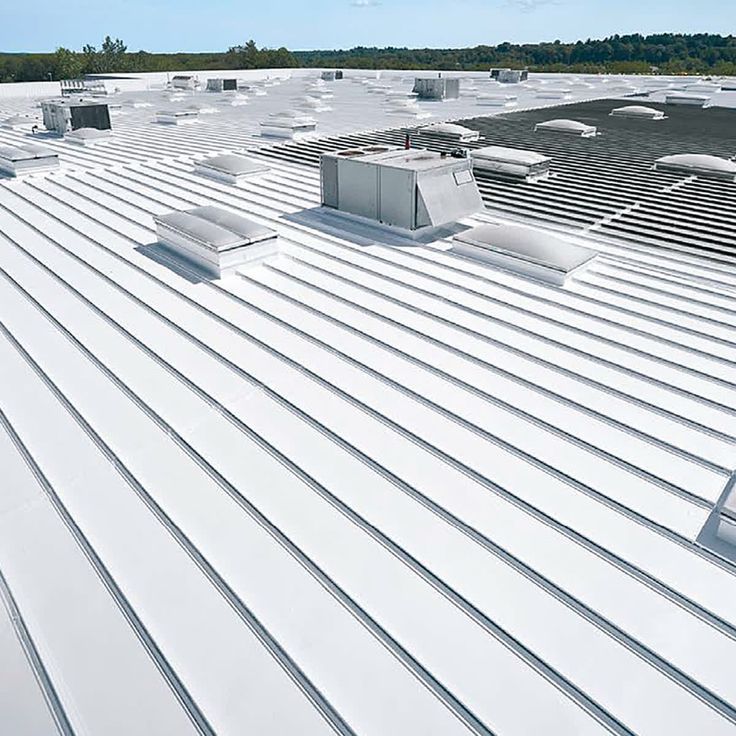Flat Roof Snow Load Assessment Services by Torrance Elite Roofing
When winter weather strikes Southern California, flat roofs face unique structural challenges that many property owners overlook. Snow accumulation on flat surfaces creates concentrated weight loads that can exceed your roof's design capacity, leading to sagging, leaks, or even catastrophic failure. Understanding your roof's snow-bearing capacity is essential for protecting your investment and ensuring occupant safety.
Torrance Elite Roofing specializes in comprehensive flat roof snow load assessment services that evaluate your roof's structural integrity and load-bearing capabilities. Our experienced team conducts thorough inspections using industry-standard calculations and local building code requirements to determine whether your flat roof can safely support anticipated snow loads.
Our assessments go beyond simple visual inspections. We analyze your building's structural design, roof materials, drainage systems, and local climate factors to deliver precise evaluations tailored to your specific property. Our detailed reports help you understand potential risks and necessary improvements.
Don't wait for structural problems to develop. Proactive snow load assessments protect your property from expensive damage while ensuring compliance with safety standards. Contact us today to schedule your professional evaluation and gain peace of mind knowing your flat roof is prepared for whatever winter weather brings.
Overview of Our Flat Roof Snow Load Assessment Service
Flat roofs require careful evaluation to ensure they can support accumulated snow without compromising safety or structural integrity. We focus on detailed analysis of load capacity, potential risks, and key factors affecting snow buildup and weight.
Why Get a Load Assessment
We perform snow load assessments to determine if a flat roof can safely bear the weight of snow accumulation specific to its design and location. This process helps prevent structural damage and ensures compliance with local building codes, which often set minimum snow load requirements.
Our evaluations assess the current roof condition, materials, and construction to identify vulnerabilities. By understanding the maximum expected snow load, we provide recommendations for reinforcements or maintenance to protect the building and its occupants during severe winter weather.
Risks of Excessive Snow Load
Excessive snow on flat roofs can lead to several hazards including structural failure, roof collapse, and water infiltration. The accumulation adds significant static weight, especially if ice dams or wet snow increase the load beyond the design limits.
These risks threaten occupant safety and can cause costly repairs or legal liabilities. Snow load issues also affect insulation and HVAC systems due to moisture penetration, increasing energy costs and accelerating roof degradation.
Key Assessment Criteria
We evaluate several critical factors when assessing snow load on a flat roof:
- Roof design and structure: Material strength, support spacing, and slope.
- Local snow data: Historical snowfall, snow density, and drift patterns.
- Roof condition: Signs of wear, previous damage, and drainage efficiency.
- Building use: Occupant load and potential hazards from failure.
Using this data, we precisely calculate load capacities and develop tailored recommendations for snow removal or structural reinforcement.
Contact Torrance Elite Roofing
Give us a call today to learn more about our flat roof snow load assessment services and get a free service quote.
Our Expert Assessment Process
We follow a structured and detailed process to evaluate flat roof snow loads. Our approach ensures fully accurate inspections, precise calculations, and clear recommendations tailored to each roof’s unique condition.
1. Initial Roof Inspection
We start by thoroughly examining the entire flat roof surface. Our technicians check for existing structural issues, drainage problems, and signs of water pooling or damage. We also assess roof materials and insulation, as these affect the load capacity.
During this inspection, we document roof dimensions, slope, and any rooftop equipment that may impact snow accumulation. We look closely at previous repairs or modifications, which could compromise structural integrity under heavy snow. This detailed observation helps us identify potential risks early.
2. Load Calculation Methods
Our load calculations are based on current building codes and site-specific data. We use standard formulas that incorporate roof size, pitch, and snow density to estimate the maximum expected snow load.
We adjust calculations for localized weather patterns and possible drifting effects caused by nearby structures. We also factor in live loads like equipment weight or maintenance personnel. This comprehensive method assures a realistic assessment rather than generic estimates.
3. Reporting and Recommendations
After analysis, we provide a clear, concise report. It includes load capacity results, identified vulnerabilities, and prioritized recommendations for any necessary reinforcements or repairs.
We present options formatted as a checklist for easy understanding, including cost estimates and timelines when applicable. Our report equips building owners to make informed decisions about roof safety and compliance with local regulations.
Flat Roof Snow Load Assessment Services FAQs
How much does a flat roof snow load assessment cost?
The cost of a flat roof snow load assessment typically ranges from $300 to $800 depending on the size and complexity of your building. Factors that affect pricing include roof square footage, structural complexity, and whether additional engineering calculations are needed. We provide free estimates and can often bundle assessments with other roofing services to help reduce overall costs.
Who provides certified flat roof snow load calculations in Torrance?
Torrance Elite Roofing provides professional flat roof snow load assessments throughout the South Bay area. Our certified team works with licensed structural engineers to ensure all calculations meet California building codes and local requirements. We're fully licensed, bonded, and experienced in commercial and residential flat roof evaluations.
What happens if my flat roof fails a snow load inspection?
If your flat roof fails a snow load assessment, we'll provide a detailed report outlining the specific structural deficiencies and recommended solutions. Common remedies include adding structural reinforcement, redistributing load paths, or upgrading roofing materials. We work with you to develop a cost-effective repair plan that brings your roof up to code and ensures safety.
Do I need a structural engineer for flat roof snow load assessment?
While basic assessments can be performed by experienced roofing professionals, complex structures or significant structural concerns require a licensed structural engineer. We work with certified structural engineers when needed and can coordinate the entire process for you. Simple evaluations on standard commercial buildings often don't require separate engineering consultation.
How long does a commercial flat roof snow load evaluation take?
Most commercial flat roof snow load evaluations take 2-4 hours on-site, depending on building size and complexity. We'll typically provide preliminary findings immediately and deliver a complete written report within 3-5 business days. Emergency assessments can be expedited when safety concerns are present.

